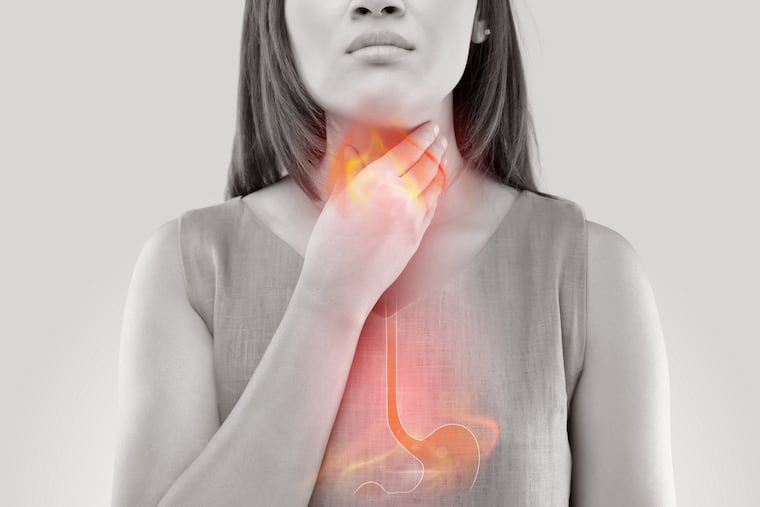Q&A: How to tell heartburn and acid reflux apart
Acid reflux is the act of stomach acid and other stomach contents flowing back up into the esophagus. Acid reflux also can cause regurgitation, belching, nausea and a sore throat, among other symptoms.

Q: What is the difference between heartburn, acid reflux and GERD?
A: Acid reflux is the act of stomach acid and other stomach contents flowing back up into the esophagus. Acid reflux also can cause regurgitation, belching, nausea and a sore throat, among other symptoms.
One common cause of acid reflux is a hiatal hernia, a stomach abnormality that allows acid to move up toward the esophagus. Other common causes of acid reflux include eating too quickly, lying down after eating, and eating spicy foods.
Heartburn, a burning pain or discomfort in the lower chest, is the most common symptom of acid reflux, though it does not appear in every case.
Over-the-counter antacids, such as Tums and Alka-Seltzer, are usually effective in alleviating mild discomfort caused by heartburn and acid reflux. The following lifestyle changes also can help reduce common symptoms:
Wait to lie down for two to three hours after eating.
Avoid spicy foods, tomato-based products, acidic foods, dairy products, large amounts of caffeine, chocolate and carbonated drinks.
Eat smaller meals more frequently throughout the day instead of big meals.
Gastroesophageal reflux disease (GERD) is the chronic form of acid reflux. About one in five adults in the U.S. experiences GERD, according to the International Foundation for Gastrointestinal Disorders. GERD is diagnosed when acid reflux occurs frequently (more than two or three times a week) and lasts for prolonged periods of time.
Antacids sometimes do not relieve pain experienced from GERD, and symptoms are often severe, including burning, pressure in the chest and difficulty swallowing due to inflammation in the esophagus, which can cause long-term complications if left untreated.
Having GERD increases the risk for the following chronic conditions:
Esophagitis, or inflammation in the esophagus, can cause bleeding, ulcers and chronic scarring, which can alter the esophagus, cause muscle spasms in the throat and chest and limit the ability to swallow.
Barrett’s esophagus occurs when tissue in the esophagus is replaced by tissue similar to stomach lining. Barrett’s esophagus is associated with an increased risk of developing esophageal cancer.
Esophageal adenocarcinoma is cancer that forms in mucus-secreting glands that replace normal esophageal lining from long-term acid exposure.
Lifestyle changes mentioned above can help limit the severity of GERD symptoms. However, a gastroenterologist may also recommend over-the-counter or prescription medications to relieve symptoms and limit esophageal damage.
If you are experiencing frequent acid reflux, speak with a gastroenterologist immediately.
Sonaly Patel is a gastroenterologist at Mercy Catholic Medical Center.